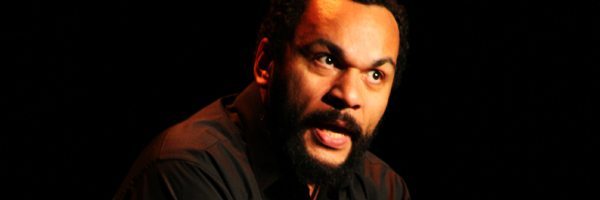The Problem of banning Dieudonné
December saw a political furore in France over the ban of controversial comedian Dieudonné touring around France. Cititcs of the comedian claim he is an anti-semite flouting his bigotted views in order to stir up racial hatred. In contrast, Dieudonné claims he is proponent of free speech and should be allowed to mock Jews. The debate recently hit the international stage when footballer Nicolas Anelka performed Dieudonné’s famous quenelle gesture during a premier league match. The debate has also raised the problem of increasing anti-semitism and what limits should be placed on free speech.
The debate recently hit the international stage when footballer Nicolas Anelka performed Dieudonné’s famous quenelle gesture during a premier league match.
Dieudonné M’bala M’bala, 47, and of Cameroonian descent, was a popular French comedian, achieving success during the 1990s for his act that mocked racial stereotypes. Dieudonné became an acitivist against racism and even campaigned against French far-right party, Le Front National in 1997 and 2001.
However, over the last decade Dieudonné has increasingly shifted his stance to a far right anti-jewish position. Ever since 2003, when Dieudonné performed a controversial sketch in which he depicted an Israeli settler as a Nazi officer, critics have argued that he has crossed the borders of comedy. In 2006, Dieudonné became close friends with his former enemy and leader of Le Front National, Jean-Marie Le Pen, who became the godfather to his third son. In 2008, Dieudonné welcomed Robert Faurisson, an Anglo-French Holocaust denier, on to one of his shows and presented him with an ironic “insolent outcast” award with a man depicted as a Jewish camp member. Furthermore, Dieudonné has been quoted only recently criticising a French Jewish reporter saying: “when I hear Patrick Cohen talk, I think to myself ‘the gas chambers … pity”.
Despite Dieudonné’s claims that he is a satricist who challenges everyone, Dieudonné has ceased to be a comedian. It is clear that Dieudonné is not telling light-hearted jokes anymore and his continuous approach to the right shows a compulsion to single out Jews. Not only is it bad taste, Dieudonné’s career has become a farce: a political pantomine of vitriolic attacks against Jews and what he claims is a Zionist system operating in France. Despite Dieudonné’s assertion he is not antisemitic, there’s only so much taunting you can do towards one minority before it becomes clear that you are just a tedious racist.
Not only is it bad taste, Dieudonné’s career has become a farce: a political pantomine of vitriolic attacks against Jews and what he claims is a Zionist system operating in France.
Dieudonné was brought into the international spotlight when footballer Nicolas Anelka performed the comedian’s trademark quenelle gesture during a premier league football match. Although Dieudonné claims that it is simply an anti-establishment gesture, there are more sinister connotations to the quenelle. The quenelle was used politically by Dieudonné for his anti-zionist party during the European elections in 2009. A party which professed the liberation of France from “the Zionist dictatorship” and the need to “emancipate from the slavery”, the quenelle is clearly a signature of Dieudonné’s antisemitic propaganda. Whatever other people’s motives are for doing the gesture, the quenelle has clear antisemitic origins.
French Interior Minister Manuel Valls, who enforced the ban, claims Dieudonné’s shows are a threat to public order. The ban is the latest in a long history in France of trying to quell antisemitic fervour. However the problem with state enforced bans, such as the Gayscott Law of 1990 which made Holocaust denial a crime, is that they allow provocateurs like Dieudonné and his supporters something to rebel against.
Likewise, censorship ultimately gives the comedian his own space channelling his act towards a specific audience which is becoming increasingly more radical and popular, particularly amongst the disenfranchised French working-classes. Dieudonné and his supporters will like nothing more than being branded as outcasts from a society they strive to fight against.
Although Dieudonné is a highly controversial figure, banning him does not solve a problem which is deeply rooted within French society. Debates with Holocaust deniers and antisemites are tedious, there needs to be debate to combat such views. The point is that debating is the best tool against people like Dieudonné and to censure him is a short term solution which will only diminish our ability to argue with these people in the future.
Although Dieudonné is a highly controversial figure, banning him does not solve a problem which is deeply rooted within French society.
If Dieudonné believes he has a political message, which he clearly does, then let him into a political debate and see how he fares. Dieudonné’s aura as an outsider would lose all meaning if he were challenged in an open political debate. A mouthy and politcally confused provocateur, the onslaught of rational interrogation which would come his way would eventually trump his blithering monologues.The French could let him continue to spout against the system and Jew-bait behind close doors, however, we would be better off confronting such people on their views now as they will not go away any time soon.
[divider]
Photo: flickr/hervaud

Comments (1)
Thought this was about me for a sec!